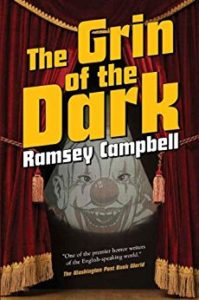A Guest Post by Tonya L. De Marco
It’s probably no secret if you’ve read any of my material or heard me speak on panels at conventions that I enjoy creating dark and twisted characters. I’m fascinated with what makes them tick and how they morally justify doing the things they do.
 Lines between heroes, villains, and anti-heroes can become quite blurred to nearly invisible at times in the story. I recently participated on a panel at StarFest Convention in Denver on the subject. The intended discussion was meant to be about creating strong antagonists, however I kept steering the conversation back in the direction of this haunting question: What is the difference between the good guy and the bad guy when they each break the rules?
Lines between heroes, villains, and anti-heroes can become quite blurred to nearly invisible at times in the story. I recently participated on a panel at StarFest Convention in Denver on the subject. The intended discussion was meant to be about creating strong antagonists, however I kept steering the conversation back in the direction of this haunting question: What is the difference between the good guy and the bad guy when they each break the rules?
Fellow authors and panelists Kal Spriggs and David Boop, along with moderator Peter J. Wacks and I bantered back and forth without actually solving this dilemma. But the general consensus seemed to be, if the character is breaking the rules for the greater good or for revenge, he is seen as the good guy. An example is a police officer who brings in the criminal by whatever means necessary.
These characters are justifying their wrongdoing. They are lying to themselves and often those around them. Villains do it. Heroes do it. Masterminds do it. I do it. You do it. We all lie to ourselves. A psychopath that only kills criminals is rationalizing murder by telling himself that he is making the community safer without these criminals. But what really drives him is a need, a hunger to kill. The thrill of the hunt, the power of holding a life in his hands, the satisfaction of seeing the light slowly drain from his victim’s eyes – these are the true reasons, not the lies he tells himself.
In my short story, Offspring, the main character breaks the law for monetary compensation. Indeed, she does need the money to help her family and accomplish a specific goal but she hides behind the lie. She justifies her depraved acts as necessary, not admitting she enjoys the power and the adrenaline rush from the danger, often even enjoys the acts themselves. Will she stop when she reaches her goal? Or will she find another lie to tell herself so she can continue?
Creating characters that lie adds another level of relatability. Lying to themselves and others helps to show them as human. Whether you create human monsters or super cops, the justifications and rationalizing they do throughout the story is something they have in common with each other and with most of the population.
The lines between good and evil when writing dark characters still remain blurred to me. Perhaps it’s because most people are a blend of both. Whether writing protagonist or antagonist, hero or anti-hero, allow your characters to tell their own stories – even if they’re liars.
Visit Tonya L. De Marco at http://www.TonyaLDeMarco.com or stop by her modeling and cosplay page on Facebook: http://www.Facebook.com/VintageSteamtrunk.


 In the first half of Gillian Flynn’s bestseller Gone Girl, I was amazed. Flynn’s ability to communicate small issues in a marriage, how they can appear and fester just under the surface, was revelatory to me. I sure didn’t pick up Gone Girl expecting such an accurate and subtle commentary on American marriage and the differences between blue-collar and white-collar partner philosophies.
In the first half of Gillian Flynn’s bestseller Gone Girl, I was amazed. Flynn’s ability to communicate small issues in a marriage, how they can appear and fester just under the surface, was revelatory to me. I sure didn’t pick up Gone Girl expecting such an accurate and subtle commentary on American marriage and the differences between blue-collar and white-collar partner philosophies. Similarly, in Flynn’s novella The Grownup, the reader is presented with an anti-hero that, at first blush, seems honest and straight forward about who she is: a fake psychic. I’ll not mention her former job so you’re surprised when you read the short story yourself (I’ll just say this: the first two lines of the story are some of the best opening lines I’ve ever read. Talk about a hook! Winky wink). Now, as we, the readers, follow this opportunistic woman, we fall into a haunted house/evil stepson-type scenario. Nothing too surprising here – they are common horror movie tropes. And our protagonist, although a con artist of sorts, still has some admirable attributes, and it’s easy to slip into the story from her perspective. We’re even on her side. (Big spoiler here, so skip to the next paragraph if you want to read this story.) We’re on her side, that is, until we realize too late that she’s not an anti-hero – she’s the villain, and became so under our very noses. And this is Flynn’s trademark. Unreliable narrators to an extreme. Characters that seem like unreliable narrators and anti-heroes who become the villains before the reader can put two and two together.
Similarly, in Flynn’s novella The Grownup, the reader is presented with an anti-hero that, at first blush, seems honest and straight forward about who she is: a fake psychic. I’ll not mention her former job so you’re surprised when you read the short story yourself (I’ll just say this: the first two lines of the story are some of the best opening lines I’ve ever read. Talk about a hook! Winky wink). Now, as we, the readers, follow this opportunistic woman, we fall into a haunted house/evil stepson-type scenario. Nothing too surprising here – they are common horror movie tropes. And our protagonist, although a con artist of sorts, still has some admirable attributes, and it’s easy to slip into the story from her perspective. We’re even on her side. (Big spoiler here, so skip to the next paragraph if you want to read this story.) We’re on her side, that is, until we realize too late that she’s not an anti-hero – she’s the villain, and became so under our very noses. And this is Flynn’s trademark. Unreliable narrators to an extreme. Characters that seem like unreliable narrators and anti-heroes who become the villains before the reader can put two and two together.


